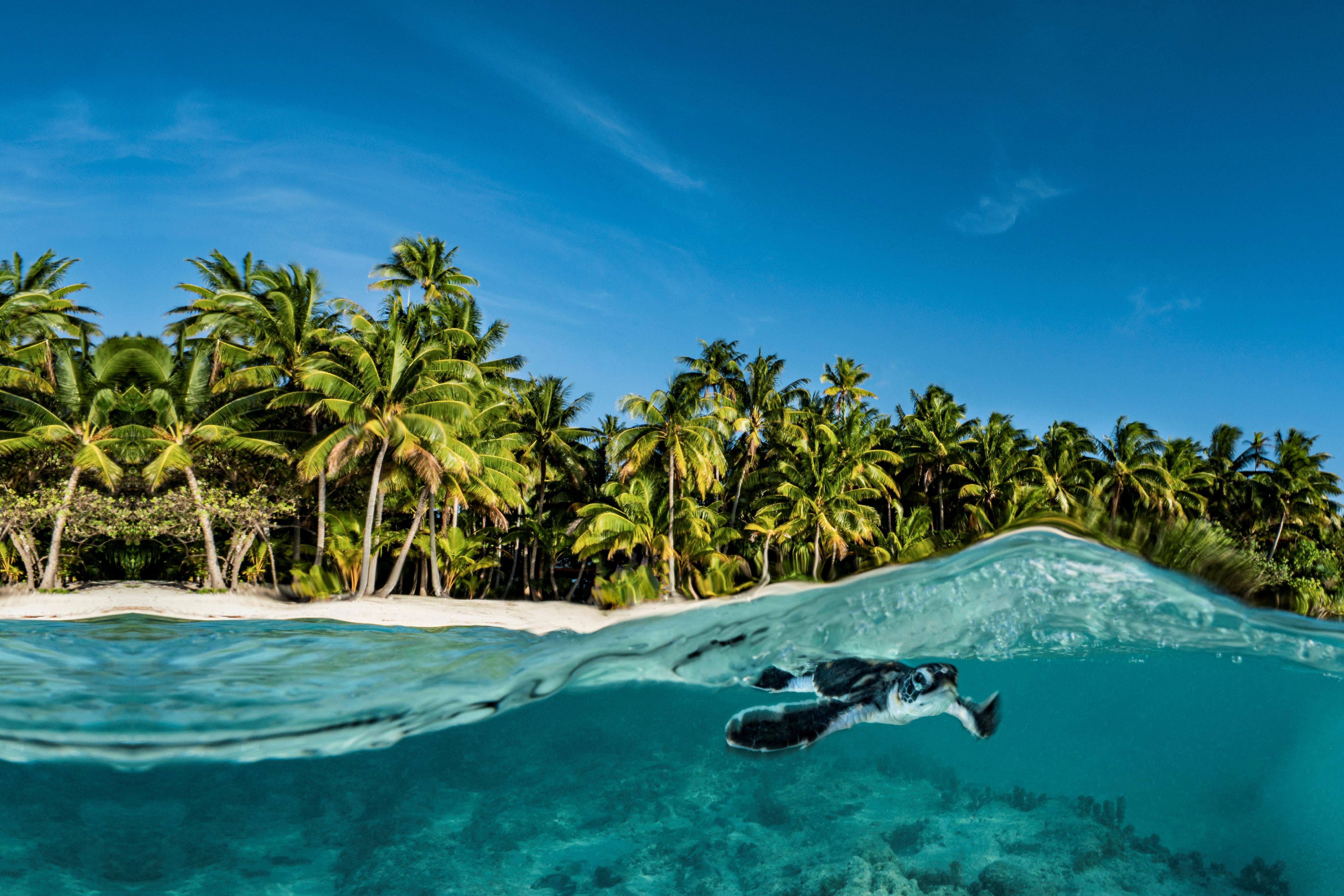Sea turtles, our precious sentinels

Symbols of perennity, turtles have been crisscrossing the seas since the dawn of time. Did you know that they are one of the few species to have cohabited with dinosaurs? Yet, many of them are now facing major challenges to their survival. Out of the seven existing species of marine turtles, six are classified as "vulnerable" or even "critically endangered". The multiple threats affecting them at an alarming pace show that the ecosystems, both on land and at sea, are deteriorating. These "sentinel" species are warning us.
Witnessing the decline of these deans of the seas sets an alert to various types of pollution. Think of the massive amount of plastic waste in the oceans, for instance. Turtles feed in part on jellyfish and mistake plastic bags floating in the water for prey. This phenomenon caused by human interference in the natural environment often leads to death by suffocation or poisoning. According to an American study published in 2021, on the Texan coast, the proportion of turtles that have ingested plastic doubled between 1999 and 2019, reaching 65.5%. It is estimated that at least a thousand sea turtles die each year due to plastic pollution.
Another cause for concern is that global warming is unbalancing the sex ratio. How? The temperature of the sand in which the eggs nest influences the sex of the future hatchlings. If the temperature is higher, the majority will be female. Researchers Allen and Jenssen's study of the green turtle population on Raine Island in Australia highlighted the scale of this problem, with female turtles now outnumbering males by 116 to 1 (compared to a current ratio of 6 to 1 for turtles aged 30-40 years). 99% of turtles born in the last twenty years are female.
Finally, excessive light pollution from seaside resorts whose beaches are home to turtle nests is also preoccupying. Artificial lighting disorients hatchlings, which usually use moonlight to reach the sea. This is particularly the case in Boca Raton, Florida, where disorientation affects half of the hatchlings, with thousands of them being crushed on the road or trapped in vegetation. This is even more of a problem given that this journey to the sea, fraught with predators, already represents a significant challenge in itself. The rate of hatchlings reaching adulthood is already very low (barely 1%). This loss of reference points raises the alarm about light pollution, which not only disrupts ecosystems but also harms human health.
Monitoring sea turtle populations around the world is essential, not only because the data acts as a bioindicator but also because of concern for preserving the habitats in which they live. Switching off public lighting near nesting areas, limiting waste and providing shade for nests are all solutions to be implemented by local public policies... Not forgetting the fight against poaching for food, traditional medicine, decoration, and jewellery... According to the UN, this trade is worth 23 billion US dollars annually.

Photo : Alexis Rosenfeld
To be read also in the dossier "Seas at risk":




